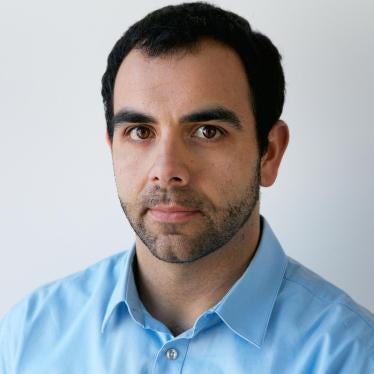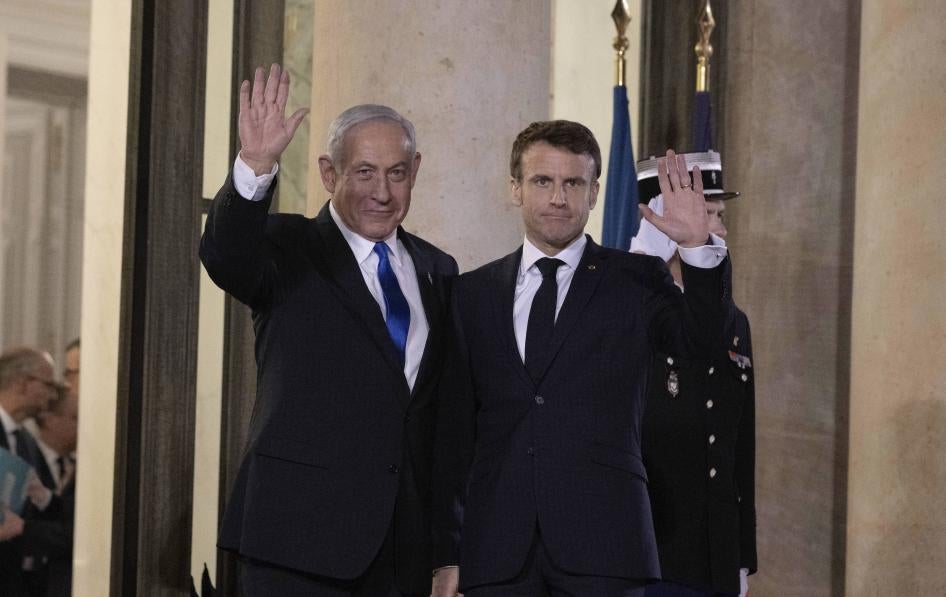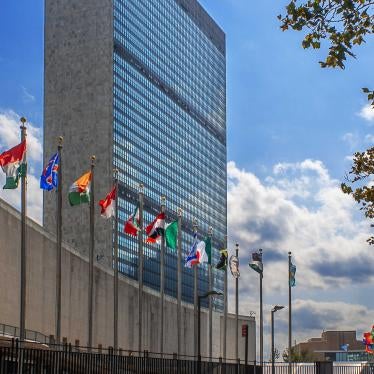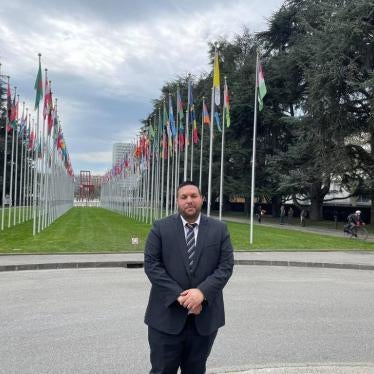The French National Assembly is set to debate a motion on May 4 about whether to recognize that the crime against humanity of apartheid is committed by Israeli authorities. We, as organizations committed to the defense of international law and human rights, consider it a positive development that this will be the subject of a democratic debate in France. We hope it will be as constructive and impactful as possible.
For several years, teams of researchers and lawyers from Palestinian, Israeli, and international organizations, as well as members of United Nations agencies, have conducted legal analysis and in-depth investigations into the multiple forms of discrimination suffered by Palestinians. Their reports all come to the same conclusion: Israel’s discriminatory and oppressive policies constitute the crime of apartheid under international law.
The system of discrimination prevents millions of Palestinians, including Palestinian refugees, from enjoying their fundamental rights and from having their human dignity respected. It affects all aspects of Palestinian life: the expulsions and destruction of Bedouin villages in the Negev/Naqab desert, land expropriation, control of resources for the benefit of Jewish Israelis, the restrictions on movement for Palestinians in the occupied territory, the illegal settlements, fragmentation, as well as the numerous forms of social, economic and political discrimination against Palestinians who are citizens of Israel that privilege Jewish Israelis at the expense of Palestinians.
The Israeli authorities are committing the crime of apartheid, as defined in particular in the United Nations Convention on the Suppression and Punishment of the Crime of Apartheid and the Rome Statute to the International Criminal Court.
This situation has only worsened, and the pace of repression has intensified after the appointment of the new government, whose finance minister and deputy defense minister, Bezalel Smotrich, said at a public meeting in Paris on March 19: "There are no Palestinians because there is no Palestinian people.”
Recognizing reality for what it is is important, because the first step to solving a problem is to diagnose it correctly.
Apartheid is not a hypothetical or future scenario. It may not have even been in 2010, when the Minister of Defense, Ehud Barak, warned of potential apartheid in case of perpetuation of the Israeli system of domination in the Occupied Palestinian Territory. Or in 2014, when the then-US secretary of state, John Kerry, warned that apartheid could result if peace talks failed.
As far back as 2007, former President Jimmy Carter, following the publication of his book, “Palestine Peace, Not Apartheid,” said that “apartheid is a word that is an accurate description of what has been going on in the West Bank… a word that's a very accurate description of the forced separation within the West Bank of Israelis from Palestinians and the total domination and oppression of Palestinians by the dominant Israeli military.”
And today, Israel’s apartheid is a matter of consensus in the global human rights movement—spanning major Israeli, Palestinian, and other international human rights groups. The former UN secretary general as well as governments, including the South African government, and foreign ministers of several EU states, have also referenced Israel’s apartheid. In May 2021, French Foreign Minister Jean-Yves Le Drian said: “If by any chance we had a solution other than the two-state solution, we would have the ingredients of an apartheid that would last a long time … even the status quo produces that."
In Israeli media, the term “apartheid” to describe the system of oppression and discrimination that prevails against Palestinians is regularly used in many editorials or opinion articles. Yehudit Karp, a former deputy attorney general in Israel and formerly head of a department in the Ministry of Justice, published an essay in Haaretz in October 2021 entitled: "It's time to admit that Israel is an apartheid regime.”
And yet, the French president and other French politicians reject the reality of apartheid. In 2022, President Emmanuel Macron said: "It is not by affirming such untruths that associations that claim to pursue an objective of peace fulfill their purpose.” This denial is difficult to understand.
Our organizations seize the opportunity of the public debate on this subject to ask France and President Macron to act. By recognizing the crime of apartheid, France can send the message that it remains an actor committed to the respect of the fundamental rights of all peoples and their equality in law. Taking a stand would lay the groundwork for putting an end to the violations experienced daily by the Palestinian people and securing a better future for both Israelis and Palestinians.
Signatories:
François Leroux, President, Platform of French NGOs for Palestine
Jean-Claude Samouiller, President, Amnesty International France
Omar Shakir, Israel and Palestine Director, Human Rights Watch
Bertrand Heilbronn, President, Association France Palestine Solidarité (AFPS)
Sylvie Bukhari - de Pontual, President, CCFD-Terre Solidaire
Eléonore Morel, Executive director, International Federation for Human Rights (FIDH)
Issam Younis, Executive director, Al-Mezan Center for Human Rights in Gaza
Shawan Jabarin, Executive director, Al-Haq










